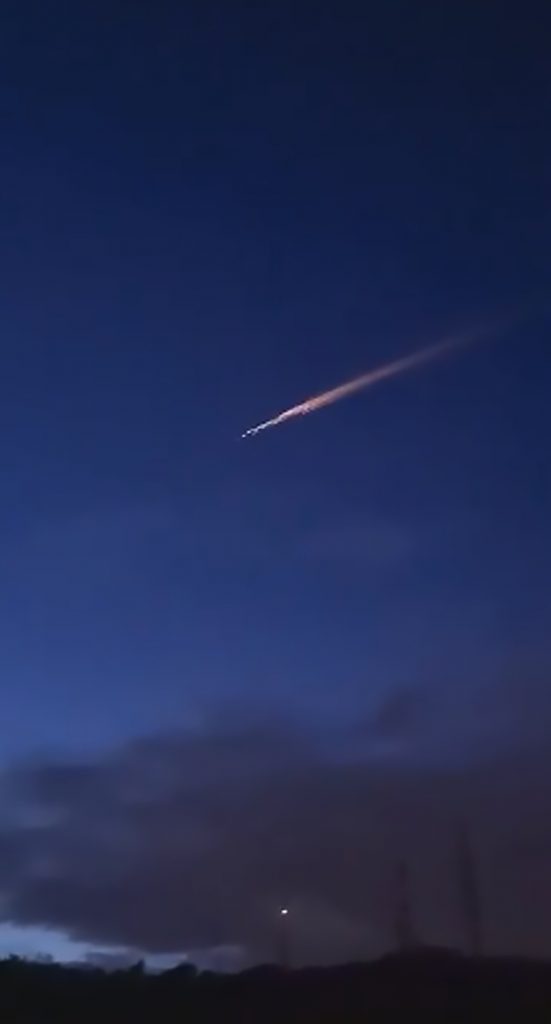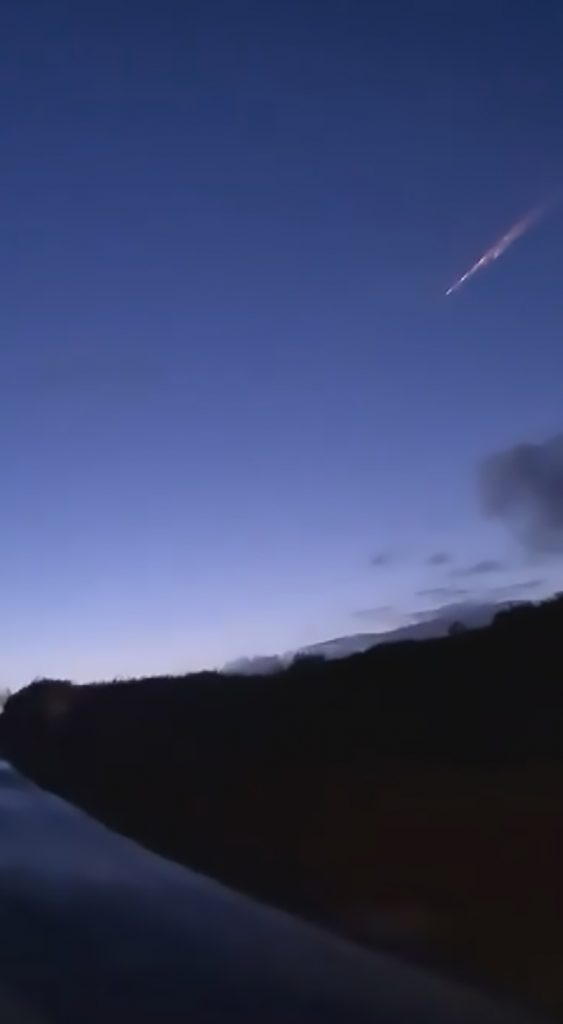Story By: Juan Fenandez Mayes, Sub-Editor: Joseph Golder, Agency: Newsflash
Newsflash/@Canaan_1983
This is the moment a blazing Russian rocket zooms across the Spanish night sky while burning up on re-entry into the Earth’s atmosphere.
The blazing Russian rocket was filmed over the city of A Coruna in the north-western Spanish region of Galicia at around 6.45am on 28th April.
The video shows the moment the rocket zooms across the sky while covered in flames. A faint sound can be heard in the distance seemingly emitted by the blazing rocket.

Newsflash/@Canaan_1983 
Newsflash/@Canaan_1983
The person filming the scene says “oh man” as the rocket continues on its trajectory. It slowly dims as the video comes to an end.
Eyewitnesses initially claimed the phenomenon was a meteor, but local media said it was a Russian Soyuz rocket that was launched in Kazakhstan last week to administer supplies to the International Space Station (ISS).
Jose Angel Docobo, director of the Ramon Aller Observatory and astronomy professor at the University of Santiago Compostela, told local media that these types of rockets are left drifting after they complete their mission “descending little by little” until they re-enter the Earth’s atmosphere.
Docobo described rocket sightings as “uncommon” because they are usually set “to fall in the ocean” but are “characterised by a certain degree of uncertainty.”
The professor added: “Just as it was seen here (Galicia), it could have continued more towards the ocean and in that case, it wouldn’t have been seen.”
Docobo said the incidents do not usually pose any real “danger” because the rockets are made of material designed to burn up on contact with the atmosphere.
However, there have been cases of “material that was too heavy” making it to the Earth’s surface.
The Soyuz rocket is a series of spacecraft initially designed for the Soviet space programme in the 1960s but remains in service today.
They are all launched from the Baikonur Cosmodrome spaceport located in southern Kazakhstan.
They are commonly used in the International Space Programme and have served as the only means for Americans to make crewed space flights since they retired their US Space Shuttle in 2011.
The ViralTab page is created by and dedicated to professional, independent freelance journalists. It is a place for us to showcase our work. When our news is sold to our media partners, we will include the link here.



